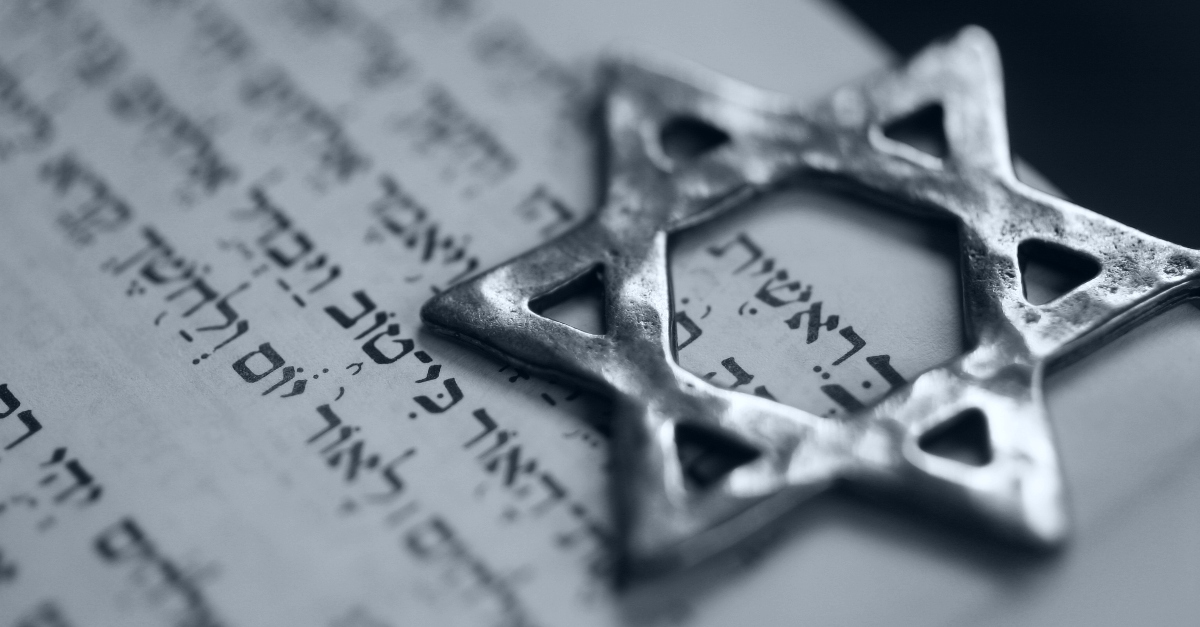
After the fall of mankind, sin entered the world, and a great deal changed. Over time, the effects of sin began to create hierarchies between men and women. After the Flood, Noah’s sons took to the various corners of the world and began the separation of different peoples and cultures. After the Tower of Babel came new languages, furthering divisions.
As these differences increased, people began to battle for control, and to be seen as superior. Inequality grew as a result. People wanted to create and enforce separations, and then treat one another differently based on those artificial separations.
While the Bible acknowledges these separations as part of the systems of man, it does not approve of the unequal treatment of others within those systems. Instead of seeing gender and race through man’s perspective, believers are called to see humanity through God’s eyes, as equally loved by the Creator, and behave accordingly.
Photo credit: ©Getty Images/ktsimage
Does the Bible Address Equality?
When examining the Bible, there are many stories where one can spot moments of inequity. Some of the most obvious are examples of conquest, when a stronger people group takes over another and brings its hierarchy with it. Much of this is the by-product of earthly divisions, and a human tendency to want to focus on and reinforce what divides people, rather than what they have in common.
When discussing issues of racial and gender equality, it can be easy to carry on the conversation in those parameters. However, that is not how God sees people. The Apostle Paul wrote, “There is neither Jew nor Greek, there is neither slave nor free, there is no male and female, for you are all one in Christ Jesus” (Galatians 3:28). God sees all the individuals in His creation as unique, but equal.
No physical or financial trait changes the way God sees that person, treats that person, and loves that person. God did not create a different patriarch for the different races. All peoples come from Adam, and he is the Father of the human race. Nor did God create women to be subordinate to men. Instead, Eve was Adam’s helper. “Then the Lord God said, ‘It is not good that the man should be alone; I will make him a helper fit for him” (Genesis 2:18). The Lord sees people in the context of eternity, rather than temporary, earthly statuses.
However, the Bible is not silent on the inequality that exists. Some verses that address this topic include:
Proverbs 17:5 “Whoever mocks the poor insults his Maker; he who is glad at calamity will not go unpunished.”
Leviticus 19:34 “You shall treat the stranger who sojourns with you as the native among you, and you shall love him as yourself, for you were strangers in the land of Egypt: I am the Lord your God.”
Numbers 15:6 “One law and one rule shall be for you and for the stranger who sojourns with you.”
Philemon 1:15-16 “For this perhaps is why he was parted from you for a while, that you might have him back forever, no longer as a bondservant but more than a bondservant, as a beloved brother—especially to me, but how much more to you, both in the flesh and in the Lord."
Galatians 5:6 “For in Christ Jesus neither circumcision nor uncircumcision counts for anything, but only faith working through love.”
Photo credit: ©Getty Images/Rawpixel
Does the Bible Talk about Race?

When the human authors of the Bible wrote their sections across hundreds of years, they did not have the same language for race, racism, and equity that exists today. They used different language, instead referring to people groups, cultural behaviors, and religion to indicate what ethnicity they were discussing.
Several large sections of the Old Testament contain genealogical records which follow certain families, some of which would go on to be the foundations of ethnic identities. This first split occurred after Cain killed his brother Abel. The Bible records what happened to Cain:
“Cain knew his wife, and she conceived and bore Enoch. When he built a city, he called the name of the city after the name of his son, Enoch” (Genesis 3:17).
A brief genealogy of several descendants of Cain follows, and then it mentions Adam and Eve’s new son, Seth; “To Seth also a son was born, and he called his name Enosh. At that time people began to call upon the name of the Lord” (Genesis 3:26). Though Seth and Cain were brothers, the Bible treats their descendants differently, emphasizing how the descendants of Cain mastered livestock, instruments, as well as iron and bronze, contrasting how Seth and his people called on the Lord. They are treated as different people groups because of their emphasis on God and their culture, rather than race.
On occasions where the Bible does discuss individuals of different races, their race is less important than their relationship to God. David had men of other nationalities in his court, including the loyal soldier Uriah the Hittite who David had killed to cover up his sin with Bathsheeba. The Hittites as a people did not have God’s favor, because they sinned against Him, and the Bible says God drove them out of the land (Exodus 34:11).
Though Uriah was not an Israelite, God held David accountable for this death. Justice had to be dealt equally, regardless of ethnic identity. David’s sin against Uriah and Bathsheeba is considered the greatest blot on his character. He repented, and received forgiveness, but God expected justice.
In the New Testament, one of the first Gentiles saved was an Ethiopian eunuch, “And there was an Ethiopian, a eunuch, a court official of Candace, queen of the Ethiopians, who was in charge of all her treasure. He had come to Jerusalem to worship...Then Philip opened his mouth, and beginning with this Scripture he told him the good news about Jesus. And as they were going along the road they came to some water, and the eunuch said, ‘See, here is water! What prevents me from being baptized?’” (Acts 8:27, 35-36).
The eunuch had come to worship the Lord, was studying Isaiah, and accepted Jesus as Lord. His race was not important, other than to identify him. What really mattered was his love for God.
Photo credit: ©Getty Images/Evgeniia Siiankovskaia
Does the Bible Talk about Gender Equality?

The role of women in society, as well as in the church, is addressed in the Bible both directly and indirectly. Two important examples of women being held as equal to men come from the accounts of the early church.
In the Book of Acts, new Christians enthusiastically gave some or all of what they had to the burgeoning new church. One couple, Ananias and Sapphira, tried to lie about how much they gave to the church. Ananias lied, and God struck him down for the lie. Rather than holding Sapphira accountable for her husband’s sin, or assuming she was ignorant of it because she was a woman, the church gives her the opportunity to tell the truth on her own terms. Had she told the truth, she would have been forgiven.
However, the Bible account says, “After an interval of about three hours his wife came in, not knowing what had happened. And Peter said to her, ‘Tell me whether you sold the land for so much.’ And she said, ‘Yes, for so much.’ But Peter said to her, ‘How is it that you have agreed together to test the Spirit of the Lord?’’ (Acts 5:7-8a). Both the man and the woman were held equally accountable for their own decisions. To God, and to the church leaders, gender did not matter when it came to sin.
Not only are men and women held equally accountable before God for their sin, their works in the church are held with equal esteem in the New Testament. A different married couple, Prisca and Aquila, committed their lives to the Gospel. They are mentioned three times in the Book of Acts, hosting new believers, correcting those who do not understand the truth, and ministering to others.
Paul regarded them so highly that he wrote this about them: “Greet Prisca and Aquila, my fellow workers in Christ Jesus, who risked their necks for my life, to whom not only I give thanks but all the churches of the Gentiles give thanks as well” (Romans 16:3). Every time the couple are mentioned, it is together as equals. Paul gives them the same respect and the same credit.
Both these examples of the two genders being treated as equals goes back to what God said about men and women in Genesis. Though He made them to be different, He made them to be equals; “So God created man in his own image, in the image of God he created him; male and female he created them” (Genesis 1:27). Though men and women look different, have different traits and behaviors, and often serve different roles, men and women were made equally in the image of God. They are equally responsible for their thoughts, actions, and attitudes.
Photo credit: ©Getty Images/monkeybusinessimages
Are Any People Groups in the Bible Prioritized?

The primary ethnic difference emphasized in the Bible is between the descendants of Abraham – the Hebrews – and everyone else. When the Lord made covenants with the Israelites, He marked them as separate, not because of their race, but because He asked them to live by His laws, in relationship with Him. In fact, God set Israel apart, not to be separated racially, but culturally as an example for the rest of the world to bring them to God.
“For from the rising of the sun to its setting my name will be great among the nations, and in every place incense will be offered to my name, and a pure offering. For my name will be great among the nations, says the Lord of hosts” (Malachi 1:11).
Because all people sin, the priests and the Israelites failed to live up to the law, so Jesus came and died in order to fulfill the law. Jesus’ death and resurrection reconciled all people to Him, though the Jewish people still hold a special place in His kingdom. They are the people group God used to be the human lineage of the Messiah. Jesus will reign forever from Jerusalem, both on earth and in heaven.
When they are called God’s chosen people, it means they were chosen to play a special role in His divine plan, not that they have a special superiority over the rest of mankind.
Photo credit: ©Getty Images/yoglimogli
How Should Christians Respond to Inequality?

The Lord calls His people to love Himself and to love others – to see the world as He sees it. Jesus said, “You shall love the Lord your God with all your heart and with all your soul and with all your mind. This is the great and first commandment. And a second is like it: You shall love your neighbor as yourself. On these two commandments depend all the Law and the Prophets” (Matthew 22:37-40).
When Christians see inequality in the world, the first step is to make sure they react accordingly. Reach out in love and bring attention to behavior that is not Christ-like, especially if the individual or group committing the act of inequality claims to be Christian.
Another important response is to share the Gospel. The Lord Jesus can transform a heart in a way that people cannot. The Holy Spirit can convict the racist, the sexist, and any other form of hatred. Sharing the Gospel so the Holy Spirit can transform that person is important. It is sometimes appropriate to join movements for social change, as long as that movement’s goals and tactics are inline with Biblical principles.
Ultimately, inequality will not be eliminated until Jesus Christ returns and reigns, and it will not exist in the new heaven and the new earth. One of the most beautiful pictures in the Book of Revelation is this:
“After this I looked, and behold, a great multitude that no one could number, from every nation, from all tribes and peoples and languages, standing before the throne and before the Lamb, clothed in white robes, with palm branches in their hands, and crying out with a loud voice, ‘Salvation belongs to our God who sits on the throne, and to the Lamb!’” (Revelation 7:9-10).
In heaven, there will be countless multitudes of people, equal before God, united in love. There will be no more tears, sorrow, pain, or inequality.
Sources
Dunn, James D.G. and John William Rogerson. Eerdmans Commentary on the Bible. Grand Rapids: Wm. B. Eerdmans Publishing, 2003.
Kreitzer, Mark. The Concept of Ethnicity in the Bible A Theological Analysis. New York: Edward Mellen Press, 2008.
Walvoord, John F. and Roy B. Zuck. The Bible Knowledge Commentary An Exposition of the Scriptures by Dallas Seminary Old Testament and New Testament. United States of America: Victor Books, 1987.
Photo credit: ©Getty Images/Worawee Meepian
Bethany Verrett is a freelance writer and editor. She maintains a faith and lifestyle blog graceandgrowing.com, where she muses about the Lord, life, culture, and ministry.